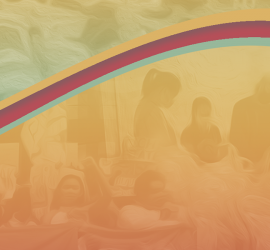As the webinar series continued on its fourth run, its focus now shifted to Development, Implementation, and Evaluation of Participatory Projects. The first speaker for this webinar, Sir Karl Arvin Hapal from the Department of Community Development, College of Social Work and Development at the University of the Philippines Diliman, explained that the concepts he will be discussing are based on the concept of decolonization of development. As he said, this means that the development is being brought back to the people. Prof Hapal’s first key point is about the conventional practices and methods that are used for participatory project development, implementation, monitoring, and evaluation. These include Logical Framework, Theory of Change, and SWOT Analysis. A logical framework is used to assess the contribution of small activities to the bigger objective. Theory of Change includes if-and-then-statements (if C is done, E will be the result) to assess a project. SWOT Analysis involves looking into the strengths, weaknesses, opportunities, and threats of a project. Prof Hapal claimed these methods as logic and evidence-based but he also claimed that these are not without limitations. He expounded by saying that these methods have philosophical biases. It was developed through the lenses of business and public administration – through managers and administrators. Due to their origin, these methods were subjected to top-down tendencies. Moreover, the conventional methods perceive a project life cycle like that of a tree. It is linear. Prof. Hapal contradicted this and said that a project life cycle is, in reality, not linear. He challenged the participants to reexamine the planning, implementation, and evaluation of projects to make them aligned with the principles of people-centred development. By sharing an example based on his experience, Prof Hapal discussed how the reexamination is done. He mentioned the social enterprise of Maigting na Samahan ng Panlipunang Negosyante or Igting from Towerville, a relocation site in San Jose Del Monte Bulacan. There are three key points on how Igting was able to sustain its social enterprise. First was the “plano vs kolektibong pangarap at shared values.” This indicates that Igting focused more on affirming their […]
Daily Archives: February 6, 2021
1 post

